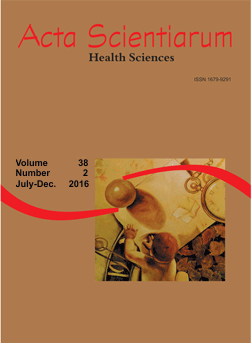<b>Institutional protocol to standardize the chest drainage system management, from surgery to nursing care, at a regional hospital in northern Paraná
Resumen
The purpose of chest drainage is to allow lung re-expansion and the reestablishment of the subatmospheric pressure in the pleural space. Properly managing the drainage system minimizes procedure-related complications. This prospective observational study evaluated adult patients undergoing water-seal chest drainage, admitted to our hospital and accompanied by residents and tutors, aiming to check their care. One hundred chest drainages were monitored. The average age was 38.8 years old. The average drainage time was 6.7 days. Trauma was the prevalent cause (72%) for the indication of pleural drainage. The obstruction of the system occurred in 6% of the cases; 5% subcutaneous emphysema, 1% infection around the drain; 5% accidental dislodgement of the drain, and in 5% of the patients, there were some complications when removing the drain. Failures in chest drainage technique and management were present, and reflected in some complications that are inherent to the procedure, although it is known that there are intrinsic complications. This study aimed to assess the management of closed chest drainage systems and standardize the care provided in such procedure.
Descargas
DECLARAÇÃO DE ORIGINALIDADE E DIREITOS AUTORAIS
Declaro que o presente artigo é original, não tendo sido submetido à publicação em qualquer outro periódico nacional ou internacional, quer seja em parte ou em sua totalidade.
Os direitos autorais pertencem exclusivamente aos autores. Os direitos de licenciamento utilizados pelo periódico é a licença Creative Commons Attribution 4.0 (CC BY 4.0): são permitidos o acompartilhamento (cópia e distribuição do material em qualqer meio ou formato) e adaptação (remix, transformação e criação de material a partir do conteúdo assim licenciado para quaisquer fins, inclusive comerciais.
Recomenda-se a leitura desse link para maiores informações sobre o tema: fornecimento de créditos e referências de forma correta, entre outros detalhes cruciais para uso adequado do material licenciado.























5.png)







